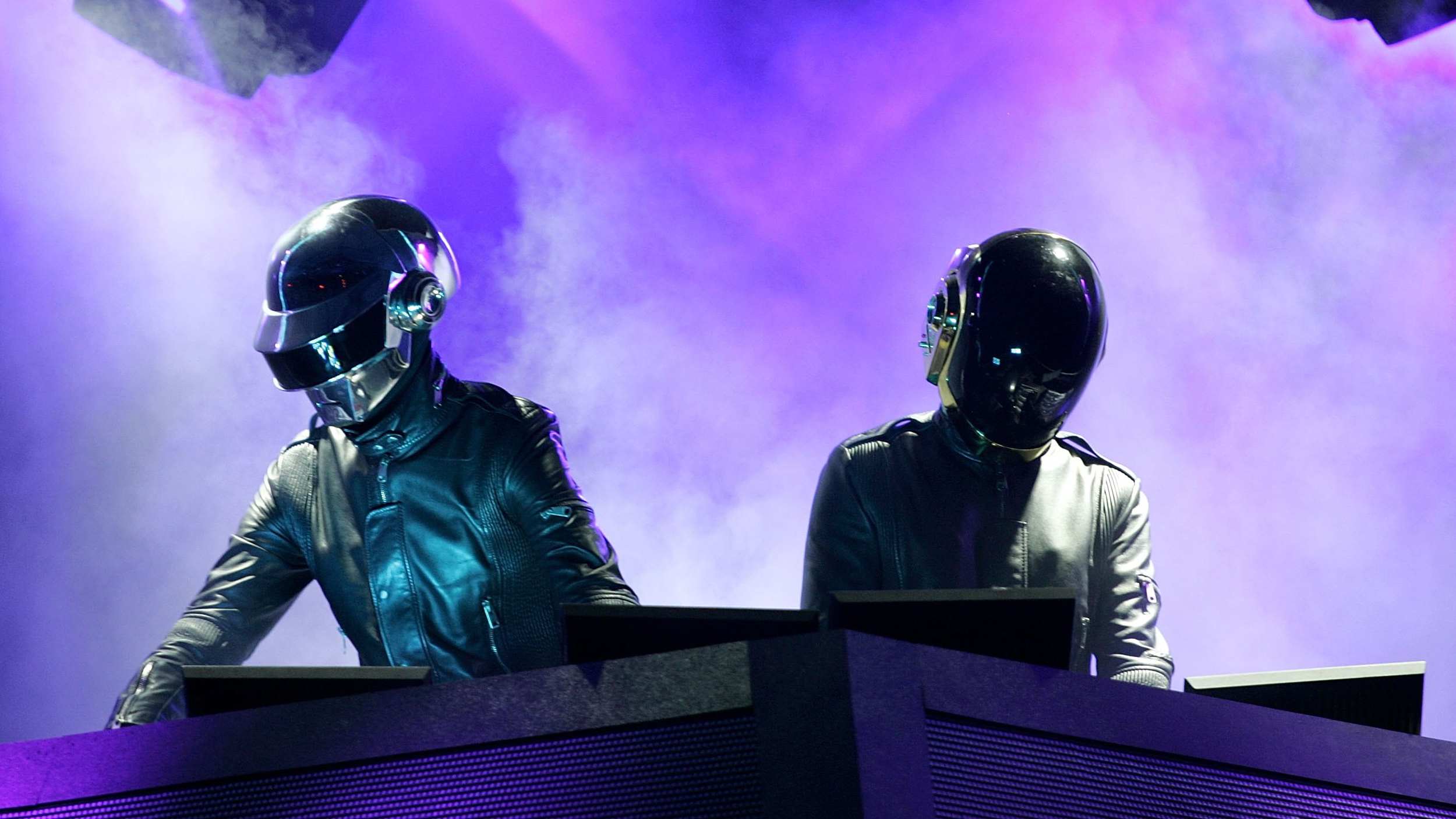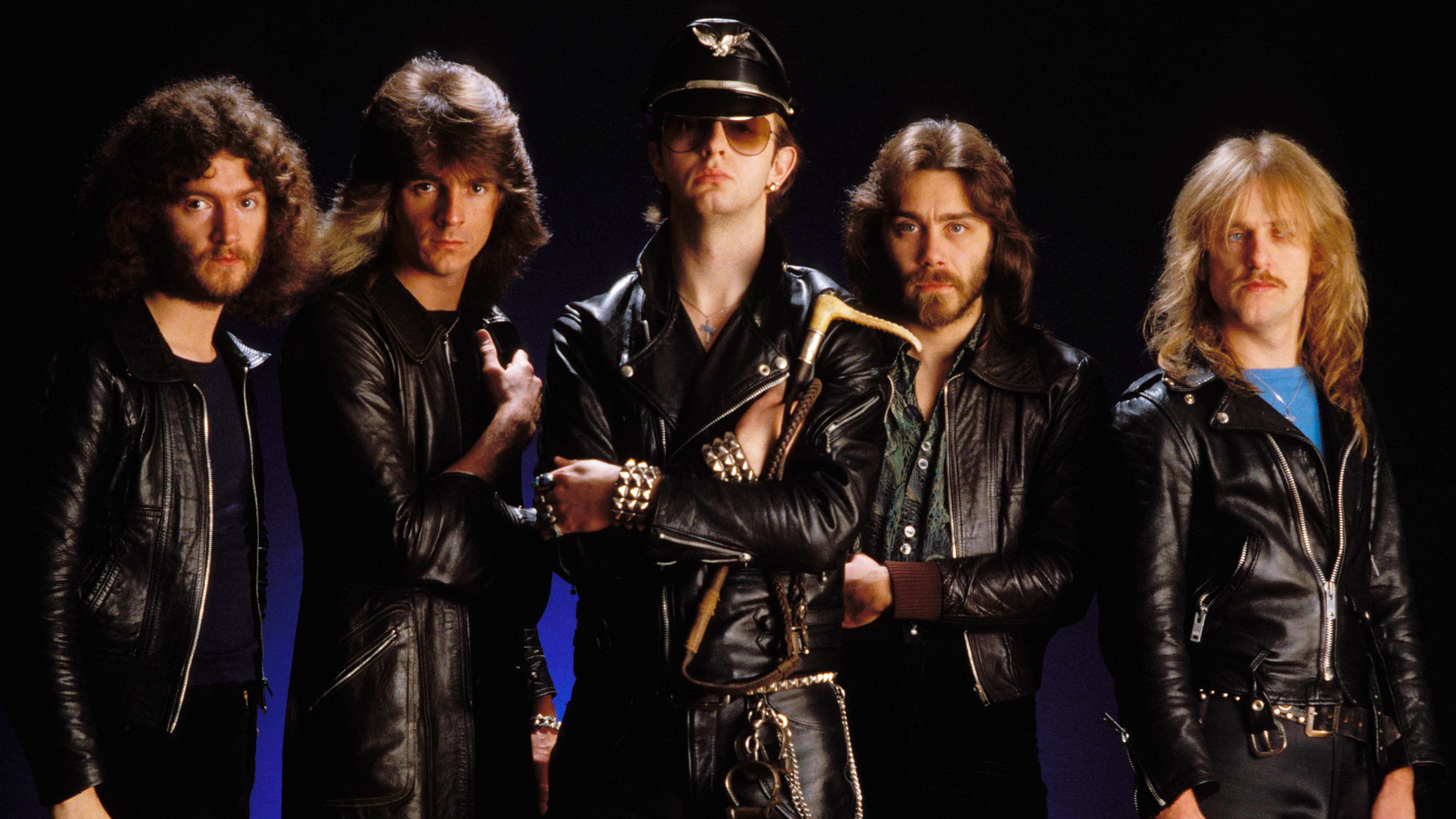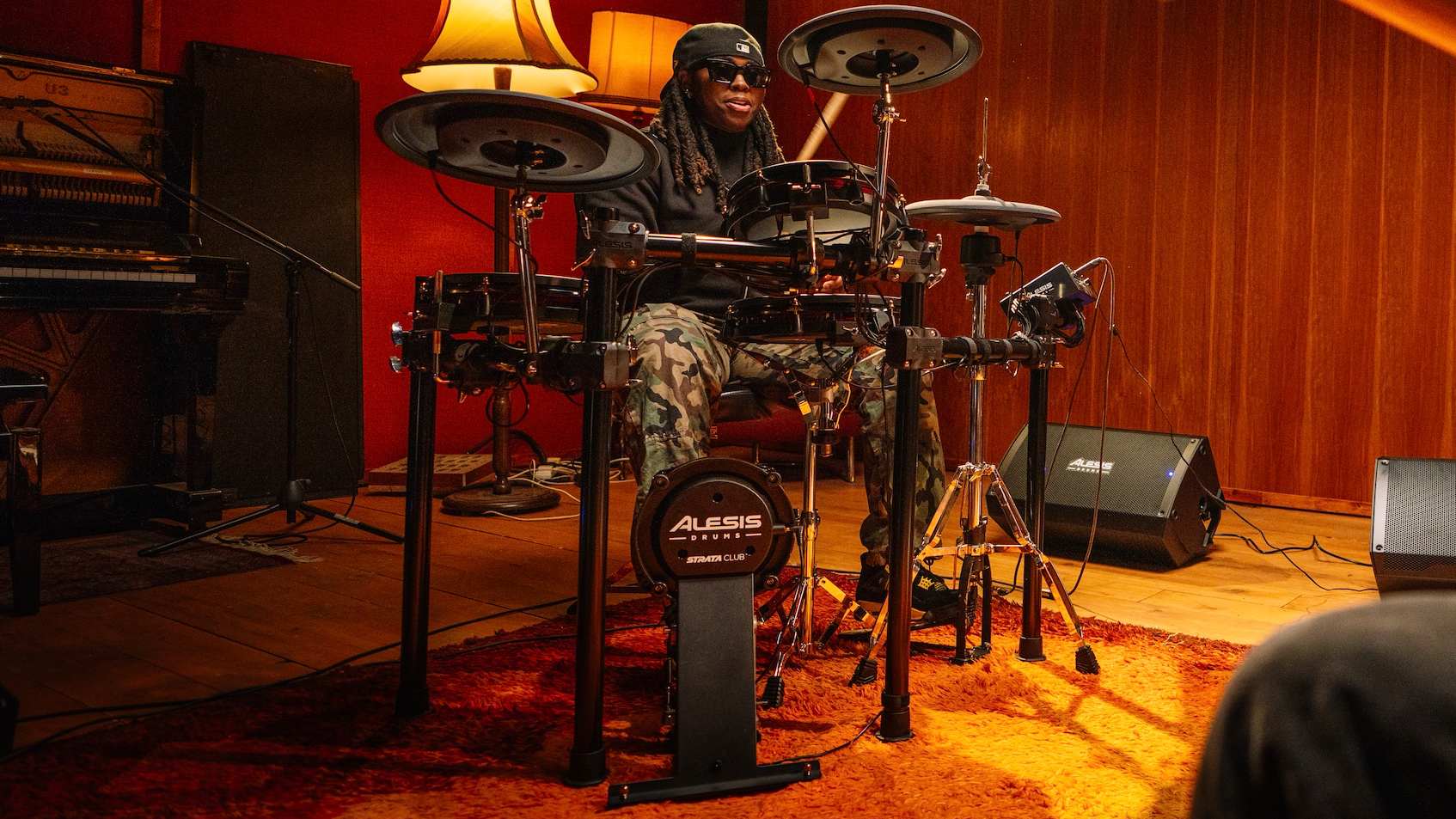Interviewed: the drummers of AC/DC
Rudd, Wright and Slade have their say
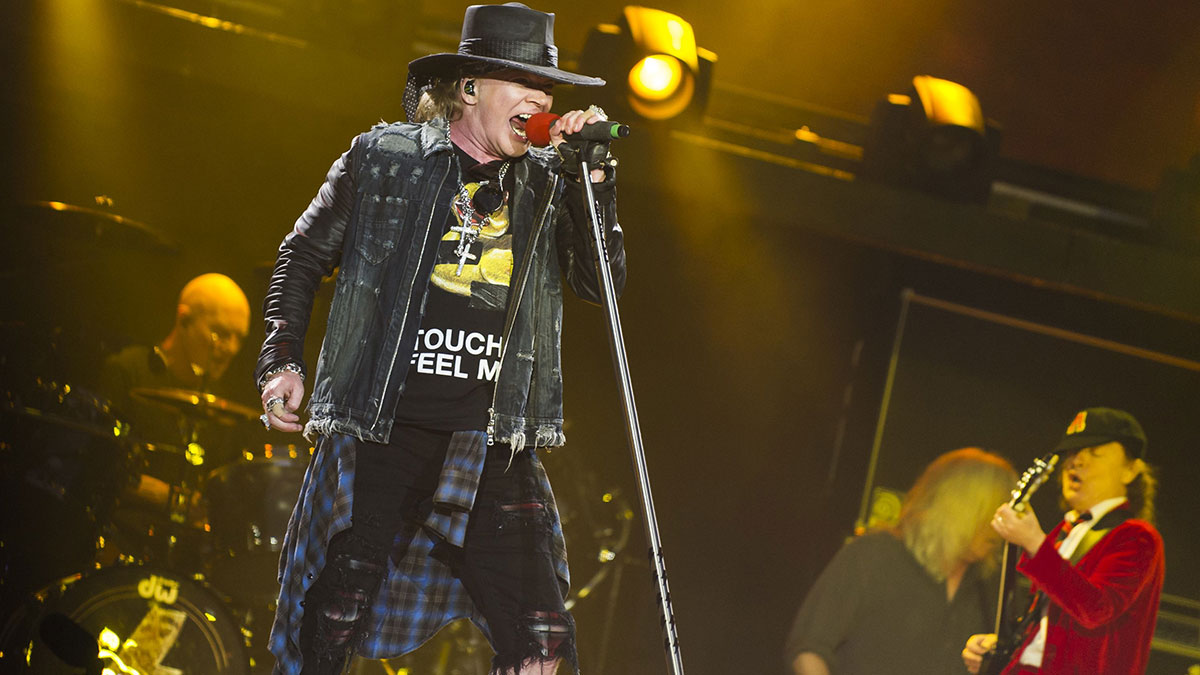
Interviewed: The Drummers of AC/DC
AC/DC are back in the UK for two huge shows in the next week. This is, of course, the new-look AC/DC with Axl Rose out front.
But that is far from the only line-up change 'DC have had down the years, they've also had a handful of drummers banging out the rock solid 4/4 behind the kit. To honour the hardest (and possibly oldest) rockers in town we've taken a look at the wise words of the stickmen that have occupied the DC drum stool - Simon Wright, Chris Slade and Phil Rudd.
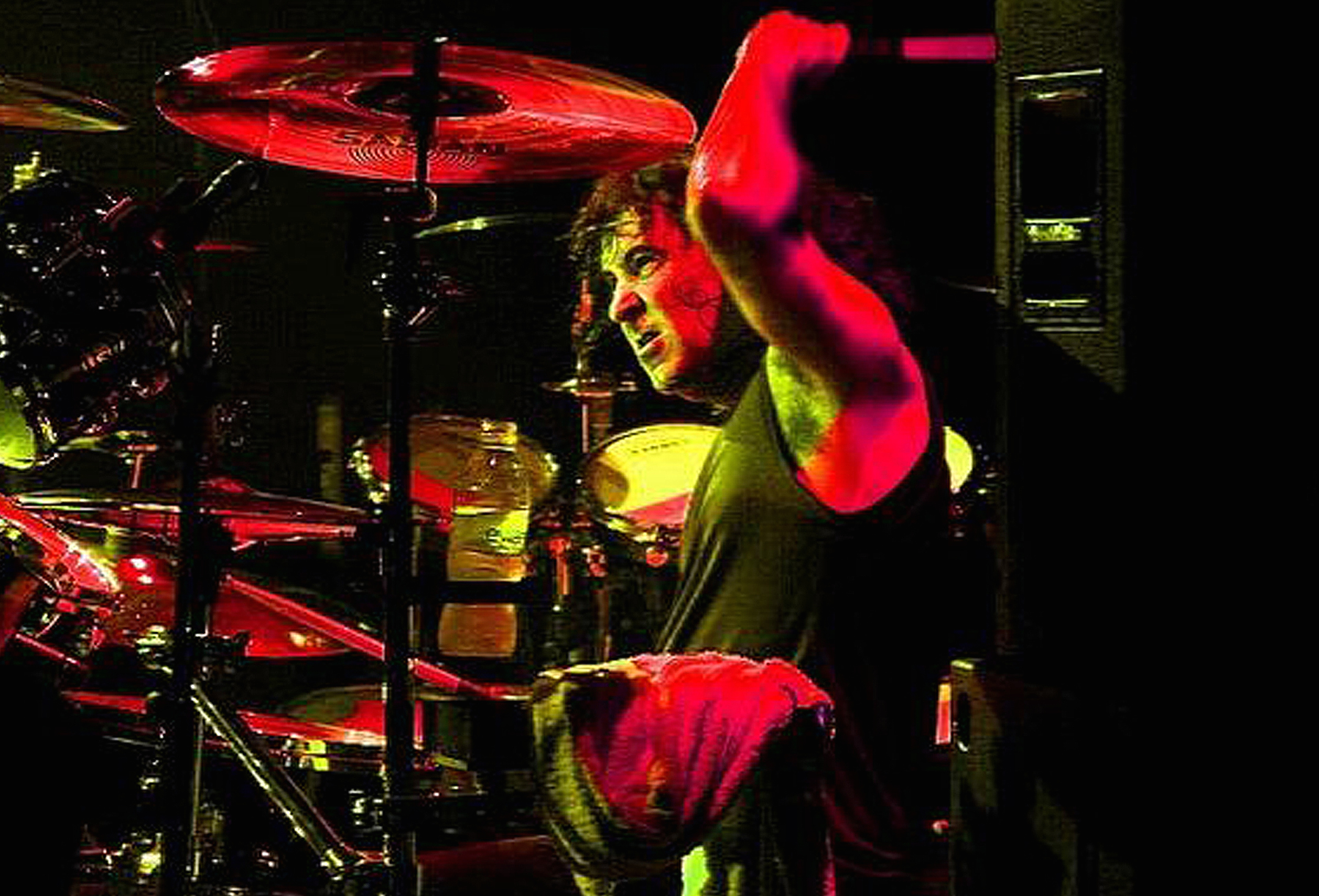
Simon Wright
Time in the band: 1983-1989
On auditioning for the band
I saw an ad in Sounds magazine. It said: ‘Drummer wanted, if you don’t hit hard, don’t apply.’ I thought, ‘I hit hard, so i’ll have a go.' I had no idea what band it was. They didn’t advertise the fact. I didn’t know until the third time I went and it was to play with the band. I walked through the corridor and it was full of flight cases with AC/DC written on them and I froze in my tracks and went, ‘F**king hell!’ I walked in and they were all really nice and cool and down to earth. We just started playing.
Hitting the road
The Flick of the Switch album had just been released so that had to be toured. We were out for about a year playing everywhere. Then it came time to do the Fly On The Wall album and we took a break. They already had some songs in mind for it. We went into the studio in Switzerland and tracked it.
A shock to the system
I’d been playing in pubs and all of a sudden I was playing stadiums, it was a bit of a leap. The first show was quite nerve-wracking. Once we got down to it and started playing it clicked. I had to just get on with it. Doing that first album was good, and we were in a nice part of the world with a pub down the street so that helped. For me it was like being stuck in a washing machine at some points, I didn’t know what the hell was going on, but it all worked out.
Following Phil
I’d have been stupid to go in there and start doing drum fills everywhere. I couldn’t have gone in there with a double bass drum kit. I kept it to the true-ness and the way that the songs were played the best I could. I threw in a couple of little things but you have to keep the integrity of the song.
Moving on
I wanted to expand what I was doing. As brilliant and as iconic as AC/DC are, as a drummer you really don’t have that kind of room. It’s not that I didn’t like playing that straightforward, there’s an art to playing like that and keeping it solid and tight, but I had been in the band eight years and done lots of touring and I just became complacent. there’s no room around them for complacency. I felt bad about it but my heart was saying I had to move on and they saw this.
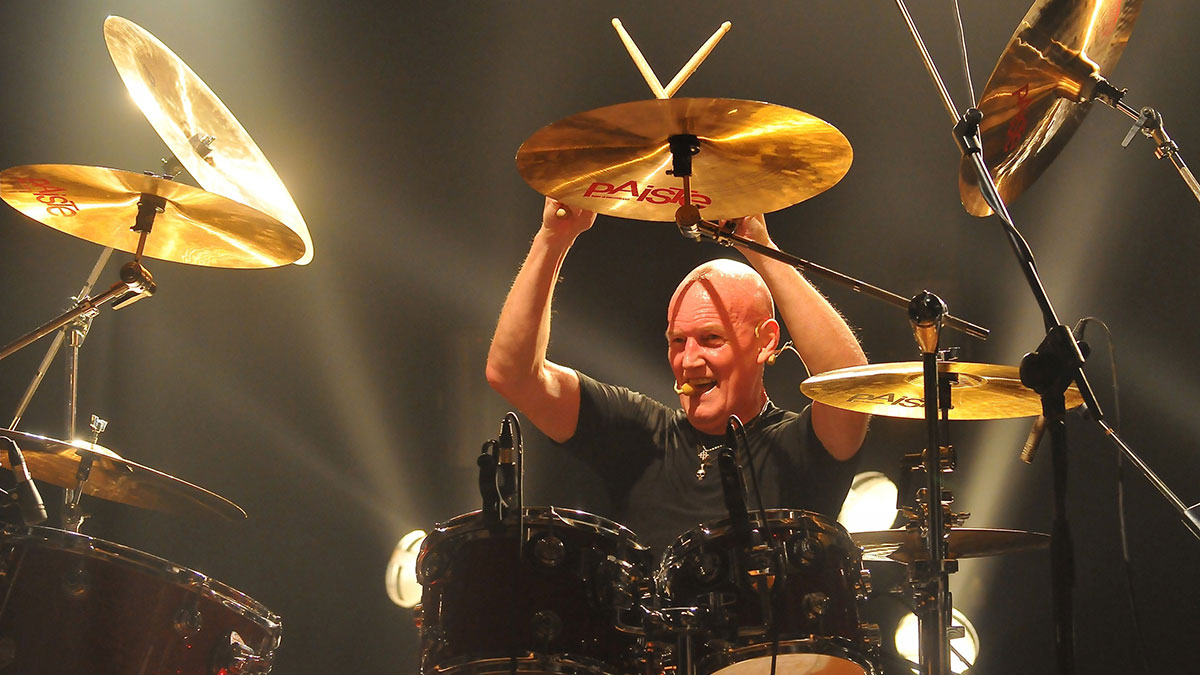
Chris Slade
Time in the band: 1989-1994, 2015-Present
Joining 'DC
I was working with Gary Moore and I think Malcolm Young came to a concert at the NEC. Bob Daisley knew Malcolm and that got me the chance to audition. I auditioned along with 100 top players. I know the names of some but I won’t say. But people from top bands were phoning the guys saying, ‘Don’t tell my band but I really want to try out for AC/DC.’
Nightmare audition
I did the audition and thought I’d done terribly. I called my wife and told her I’d be home in half an hour and it had gone terribly, I said the wrong things, I played the wrong things. I was kicking my butt all the way home. She walked up the path when I got back and she said, ‘So you did really badly then,’ and I said yes and she said, ‘They’ve just called to say you’ve got the gig!’
I didn't play the songs too fast
One thing about those live shows, people ask me if we used a click track with AC/DC, we never did. On stage, I didn’t want to play to a click and I didn’t want to hear a click. I wanted a light to flash the tempo beside me. I just wanted flash, flash, flash, flash and then I’d count the band in. I just used it for the starting tempo. Oh, and these people saying I was playing the songs too fast, I never set the tempos, it was Angus and Mal. Let’s put that on record. They set those tempos, you can’t argue with them.
The huge kit
[Mounting two bass drums above my head] came straight out of my brain. We had the ‘dum, dum’ at the start of Thunderstruck which were just dubbed toms. I was wondering how I could recreate it and make it visual for the video. I told Dick the drum tech that I wanted two bass drums up at shoulder height, he said, ‘You what?!’ I came in the next day and there they were. He’d built frames and all sorts of things to make it work.”
Quitting
I’d been doing demos with the guys in London for two months [for the Ballbreaker album]. Mal called me and said it was nothing to do with me and was nothing I was doing or not doing but they wanted to give Phil [Rudd] a try. I said, ‘That’s me out then, I’m gone.’ Mal said, ‘No, no, no we want to keep you on, we don’t even know if Phil can play,’ and I told him that was his problem now. If it ain’t broke, don’t fix it. I resigned the next day.
They wanted to keep me on for months and months and that didn’t feel right. It was probably my stupid pride. If that was my son I would now say, ‘No, just sit there, they’ll come back to you.’ To be honest, I think they would have [laughs]. We still get on and it was an honour and a privilege to play with those guys. People always ask me what I did when things went wrong on stage with AC/DC, nothing ever went wrong. I might drop a drum stick, maybe, but that was about the only thing. They were like clockwork, like a machine. Just fantastic. What a wonderful experience.
NB: This interview was conducted in 2014 before Chris re-joined the band.
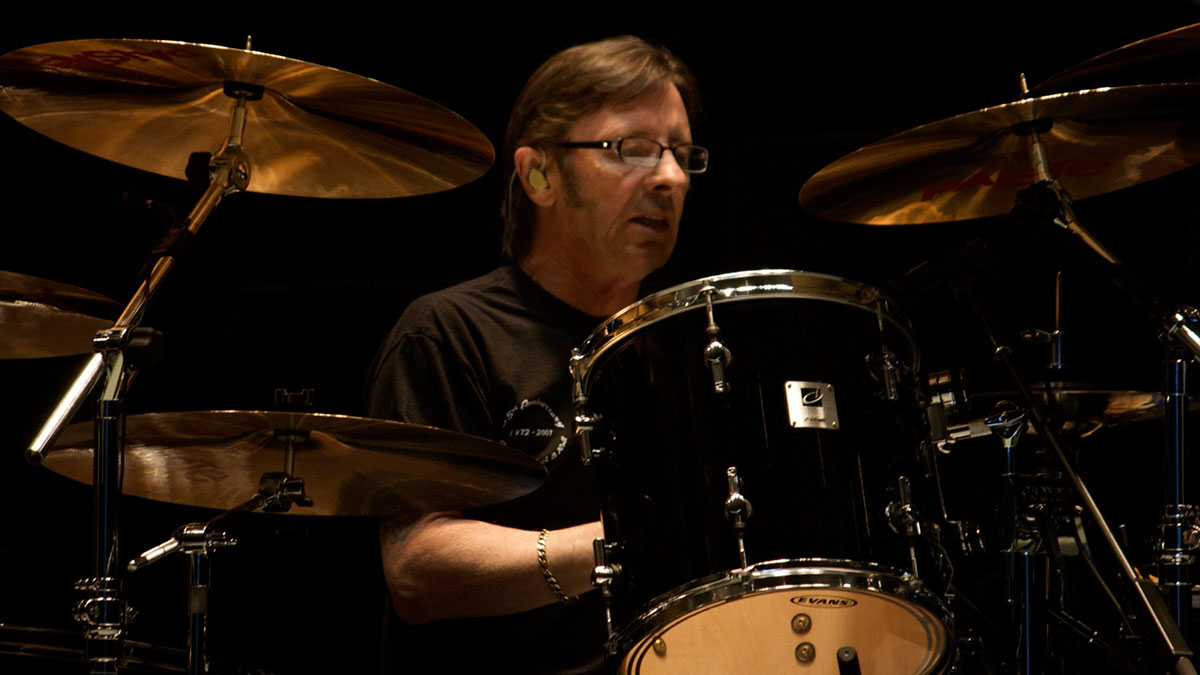
Phil Rudd
Time with the band: 1975-1983, 1994-2015
Early gigs
You could not hear anything. You'd be playing and you'd be there with a little drum kit with four Marshall stacks surrounding it. You'd be fighting to be heard so you'd be beating the s*** out of the kit just to get yourself heard. That doesn't mean that you just bashed though. I would hit pretty hard but it was all very wanting, I hit with a lot of love and a lot of passion.
On flashy drummers
They play like that because they can't play the f***king feel, mate. That's why you get that jumping around like a bunch of hairy-arsed idiots. It's because they've got no meat to go with their f***ing potatoes. You've got to mean it before you can do it, and I mean it brother, I always have and I always will.
Nah, no one ever remembers the flash. All of the flash guys out there, no one gives a f***. Today it's all about these benchmark solos and all that, back in the day it was [Ginger Baker on] Toad and John Bonham, they were the guys that played solos. John Bonham was the only guy with enough balls to take it on, but he was a complete animal. We've all got our cross to bear. I f***ing love whacking it, that's what I do and that is what I do best. I've got no intention of changing my style at this point.”
Early Influences
Simon Kirke is a great drummer. It's all about the feel and what gets your gander up. No matter which way you do it you need to make something happen and get a song that makes you feel a certain way, whether that's making you tap your foot or beat someone up or whatever you're doing, you just need some passion about it. I used to love Deep Purple and Ian Paice. That was all legendary stuff, it was all benchmark stuff coming out of England. Songs like Black Night and Can't Get Enough of Your Love, this is the kind of stuff that changed the f***ing world, mate. When Simon Kirke came in playing four at a time people said, 'You're supposed to play more than that,' No you're not, he just went chop, chop, chop. The world was changing. He changed the world by himself that wanker. Simon Kirke, what a great drummer.
Angus
Me and Angus have always played great together as well. We get on and this is the real s***. Angus is the greatest [lead] player ever.

Rich is a teacher, one time Rhythm staff writer and experienced freelance journalist who has interviewed countless revered musicians, engineers, producers and stars for the our world-leading music making portfolio, including such titles as Rhythm, Total Guitar, Guitarist, Guitar World, and MusicRadar. His victims include such luminaries as Ice T, Mark Guilani and Jamie Oliver (the drumming one).


